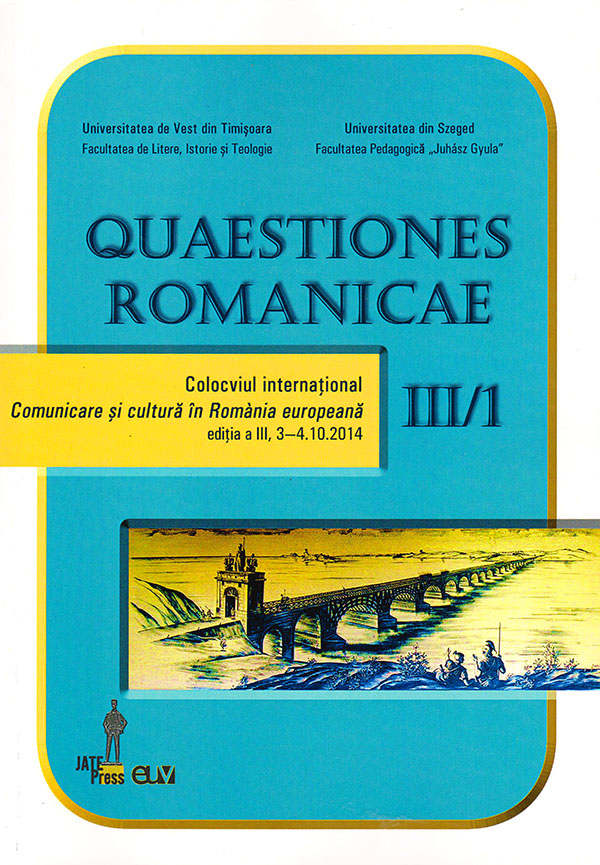Crâmpeie de istorie şi cultură iudaică în România
Abstract: (Fragments of Jewish history and culture in Romania) The first references to the Jewish diaspora in the Romanian Principalities date back to the Middle Ages, starting with the fifteenth century. As to the demographic situation of the Jews in the Romanian Principalities, the first statistical information is recorded at the beginning of the nineteenth century. Due to the lack of civil and political rights, massive emigrations to Western Europe and America take place between 1881 and 1914. In what concerns the cultural and religious context, there was always an atmosphere based on communication between the Christian and the Mosaic theologians. Thus, short after the adoption of the new Constitution (1948) guaranteeing that “all cults are equal before the law”, the Patriarch Justinian Marina organised the first inter-religious meetings between 19 and 23 June 1949 in Bucharest. On this occasion, the Patriarch set the elimination of all chauvinistic, xenophobic and racial manifestations as a condition for obtaining inter-confessional peace. After 1989, the pulse of the Jewish communities in Romania can be taken especially by reading the Jewish press in Romania and the books constantly printed by the Hasefer Publishing House in Bucharest. By the way it was lived, Judaism represents an open book addressed to all peoples and an example of cohabitation between the Jewish people and other nations in times of relegation or glory.
Keywords: history, culture, Jewish, Romania.
Rezumat: Prime referiri la diaspora iudaică din Ţările Române datează din perioada medievală, începând cu secolul al XV-lea. În ceea ce priveşte situaţia demografică a evreilor din Ţările Române, primele date statistice ne parvin de la începutul secolului al XIX-lea. Datorită lipsei de drepturi civile şi politice, între anii 1881 – 1914 încep emigrări masive spre Europa Occidentală şi America. În plan cultural şi religios, a existat permanent o atmosferă de dialog între teologii creştini şi cei mozaici. Astfel, la scurt timp după adoptarea noii Constituţii (1948) prin care se garanta „egalitatea tuturor cultelor în faţa legii”, patriarhul Justinian Marina a organizat la Bucureşti primele consfătuiri inter-religioase între 19 și 23 iunie 1949. Cu acest prilej, patriarhul Justinian condiţiona instalarea unei păci confesionale de înlăturarea oricăror manifestări şovine, xenofobe sau rasiale. Pulsul vieţii comunităţilor evreieşti din România de după 1989 poate fi „luat” urmărind mai ales presa evreiască din România şi cărţile care apar cu perseverenţă la Editura Hasefer din Bucureşti. Prin felul în care a fost trăit, iudaismul rămâne o carte deschisă adresată neamurilor şi un model de convieţuire a poporului evreu cu celelalte naţiuni în epoci de surghiun sau de glorie.
Cuvinte cheie: istorie, cultură, iudaică, România.
